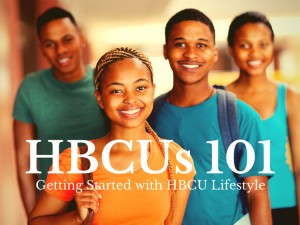Unlike any other decade, the 1990s saw an influx of African Americans in pursuit of a higher education beyond the walls of their local High School. While many African Americans found it easier to enroll at a local colleges and universities, others (either forced or desired) to attend an historic black college and university. Parents of entering freshman, took pride in sending their children to HBCUs, once established to educate African Americans in a time where other white institutions wouldn’t. Once students arrived to the HBCU, educators and staff (whom were possible alums of that or other HBCUs) instilled a since of pride and understanding to their students about their “new home”. HBCUs in the 90s were a small knit family of their own and provided a since of community in a time where racial profiling and racism was dominant within the United States. But where does this since of pride come from and why is it important?
When African Americans were freed from slavery, many desired the opportunity to obtain a degree along side their white counterparts. In an attempt to deter their educational efforts, African Americans were initially not allowed to attend public/predominately white institutions in their surrounding areas. This inspired African Americans “to find a way or make one” by establishing their own institutions in order to service their communities. Many institutions were founded and even sometimes funded by religious institutions such as churches, while others received funding from individuals against collegiate segregation. When segregation was defeated at the collegiate level, and students were finally allowed the opportunity to attend wherever they choose, many abandoned “the traditions”, in hopes of getting a more “streamlined” and “respected” education, while others kept the tradition alive.
Having the opportunity to have attended both, I now have a unique perspective. Though I am grateful for having the opportunity of attending a PWI (Public White Institution) for undergrad, I am eternal grateful and have inherited a since of pride to have attended the FIRST Graduate institution for African Americans, The Clark Atlanta University. The relationships established at CAU are like no other from a communal experience to even a Greek/fraternal experience. HBCU life forms everlasting bonds between its students, teachers and administrators which are sometimes absent at PWIs. At the University of Central Florida, I felt as if I was a number, at CAU, I feel like I am a member of a family. Not saying that all professors at PWIs are like this, but I can’t begin to count on one hand how many professors have made an impact on my academic career at CAU.
